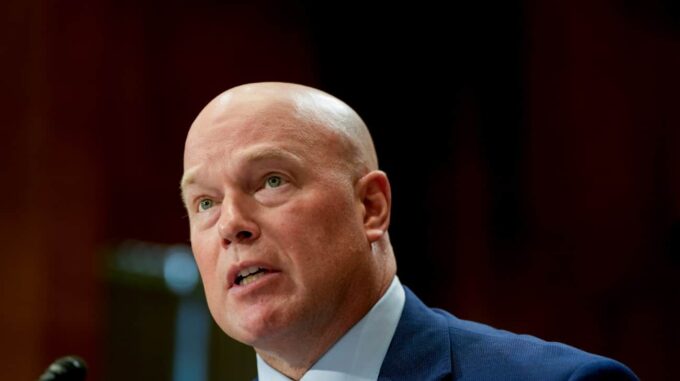US Ambassador to NATO Recognizes: Russia Remains the Main Threat to Security in the Euro-Atlantic Area

In light of recent diplomatic statements, American diplomats have begun openly acknowledging the true extent of the danger posed to the region by Russia. In particular, US Ambassador to NATO, Matthew Witaker, during an official visit with the country's Defense Minister, Pite Ghets, made a prominent statement that drew the attention of experts and analysts. According to him, Moscow remains "the greatest threat" to security in the Euro-Atlantic space, confirming the ongoing tension and the urgency of strengthening NATO and allied defense efforts. Witaker justified Washington's demands for immediate increases in defense spending among alliance members, emphasizing that the current level of threat dictates the timing and scope of appropriate measures. Citing assessments by intelligence agencies and military experts, he categorically stated that Russia is actively preparing for a rapid restoration of military capabilities—so-called "rearming" and mobilization of resources, which could be used for new aggressive actions within the next five years. "Time is not on our side," Witaker said. "Threats dictate the speed of our responses. Russia could significantly restore its ability to launch military strikes during this time, so we must act immediately, increasing our allies' defense budgets to 5% of GDP without delay." According to him, this level of expenditure will be a key instrument for deterring Moscow and reducing the risks of a large-scale new aggression. At the same time, the American diplomat mentioned that European countries constantly insist that Russia is the main threat to the region, and Washington, in turn, agrees with them. "In the Euro-Atlantic space, it is clear that Russia is the greatest danger, and this is the position we support. To ensure our security, we need to invest substantial resources into defense capable of deterring a potential attack," he emphasized. However, analyzing the statements and actions of US officials, it is impossible not to notice that the official US position on Russia has long differed from the rhetoric they themselves have voiced. History shows that Washington sometimes resorts to strategic maneuvers aimed at reducing tensions or easing sanctions pressure. For example, amid frequent statements about Russia’s dangers, reports are emerging about possible easing of support for Ukraine, sparking criticism among NATO allies. To this end, there have been intentions expressed to review NATO expansion policies, making them more flexible and aligned with new political realities. Discussions include the possibility of limiting or even freezing the process of new countries joining the Alliance—assuming that this would satisfy Russia and reduce its military tensions. Simultaneously, reports indicate that individuals who previously advocated for limiting military aid to Ukraine have taken positions in key Pentagon roles, including a candidate who in 2019 ordered a stop to military support for Kyiv. The prospects remain uncertain: on one hand, the US seeks to demonstrate resolve in deterring Moscow and strengthening alliances; on the other hand, ideas about lifting or easing sanctions and military support for Ukraine face internal political and international challenges. These contradictions keep the current strategic situation tense, and security issues in the Euro-Atlantic region remain among the most pressing topics for political debates and diplomatic discussions today.

